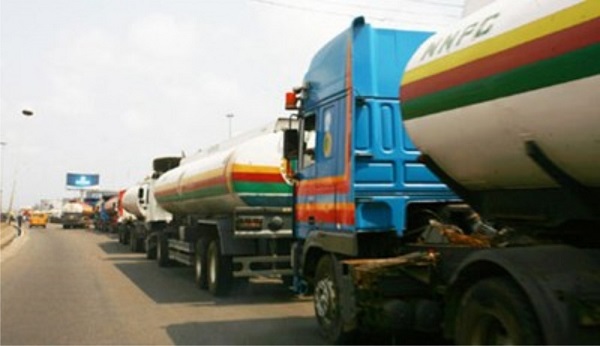Business
How Nigerian govt’s N500bn debt is causing fuel scarcity —Transporters

The Association of Distributors and Transporters of Petroleum Products (ADITOP) said it is facing a major challenge because the Federal Government is owing its members unpaid bridging claims.
The Nigerian government is owing the oil industry union about N500 billion, and ADITOP stated that the unpaid bridging claims is disrupting petroleum products transportation within the country.
This is contributing to the fuel scarcity across the country.
Ripples Nigeria had reported that fuel stations had begun selling fuel above N170 due to the scarcity and rise in crude oil price.
Read also: NNPC approves N179 per litre pump price
President of ADITOP, Lawal Danzaki, said on Tuesday, during the group’s meeting in Kano State, that effective distribution of the commodity was only possible if payment was done by the Nigerian Midstream and Downstream Petroleum Regulatory Authority (NMDPRA).
According to Danzaki, “Diesel is very costly, we find it difficult to fuel our trucks to transport petroleum products to different parts of the country”, he said, adding, “We buy spare parts for our vehicles with foreign exchange, which is also inadequate.”
The consultant to ADITOP, Maurice Ibe, said the government was owing N500 billion to individuals in the union, however, only N74 billion had been paid to the union.
Meanwhile, Ibe suggested the support of the Central Bank of Nigeria (CBN) in accessing forex to support the transportation of the petroleum products by members of ADITOP.
Join the conversation
Support Ripples Nigeria, hold up solutions journalism
Balanced, fearless journalism driven by data comes at huge financial costs.
As a media platform, we hold leadership accountable and will not trade the right to press freedom and free speech for a piece of cake.
If you like what we do, and are ready to uphold solutions journalism, kindly donate to the Ripples Nigeria cause.
Your support would help to ensure that citizens and institutions continue to have free access to credible and reliable information for societal development.






















